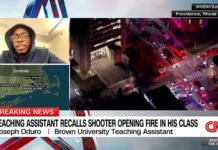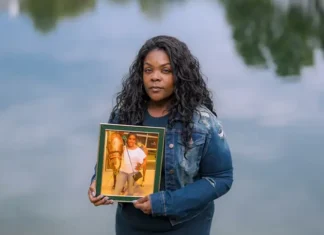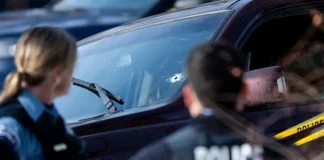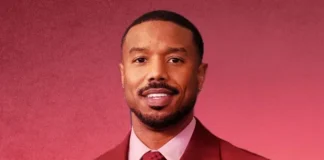
(Trice Edney Wire) – “…it’s notable that the Court felt no urgency to [correct the Fifth Circuit’s error in Mckesson] while it spent the Fischer argument thinking about how to shut down some hypothetical future case where the government may not show adequate respect for First Amendment rights. The Mckesson case, moreover, involved a Black Lives Matter protest, while the Fischer case involved a pro-Trump insurrection. If nothing else, this is a terrible look for the Supreme Court. And it suggests that many of the justices’ concerns about free speech depend on whether they agree with the political views of the speaker.” — Ian Millhiser
Should protestors be held responsible for criminal acts committed during a protest?
According to the reactions of U.S. Supreme Court justices, it may depend upon the protesters’ race or political views.
This week, the Court allowed to stand a lower court ruling that DeRay Mckesson, a Black Lives Matter activist, could be sued by a police officer who was injured during a protest, even though Mckesson did not commit the assault.
A day later, the justices “appeared skeptical” that members of the mob who attacked the U.S. Capitol on January 6th for the express purpose of stopping the electoral vote count could be charged with obstructing, influencing, or impeding an official proceeding.
In other words, if you organize a protest for racial justice – or any other issue toward which the reigning majority on the Supreme Court is hostile– you can be held responsible personally if a single attendee commits an illegal act.
But if you join in storming the U.S. Capital with the explicit and obvious intent of disrupting an official proceeding, the outcome of which the reigning majority of the Supreme Court personally opposes, you can’t be charged with disrupting an official proceeding.
At least, legal observers believe the Court is leaning that way. A ruling is expected in late June. But the very fact that the Court agreed to hear arguments in the case has led federal judges to some convicted insurrectionists early.
The justices concern that charging violent criminals with violent crimes could stifle the free speech rights of non-violent protestors is especially hypocritical in light of the fact that it’s illegal even to stand in a protest in the Supreme Court Building or grounds.
The sad fact is, Donald Trump wants the January 6 insurrectionists released, so the Supreme Court will do what it can to release them. Trump wants racial justice protestors to suffer, so the Court will do what it can to compound their suffering.
Will the justices be concerned for First Amendment rights of peaceful protestors when they are shot in the legs or expelled from the country, as Trump has advocated? Will they defend the due process rights of the accused when Trump fulfills his vow to criminally prosecute political adversaries?
The question isn’t whether the Court will find a legal justification for doing Trump’s bidding, or whether it even will try. The question is how far will the Court go to appease his vengeful, authoritarian whims.















